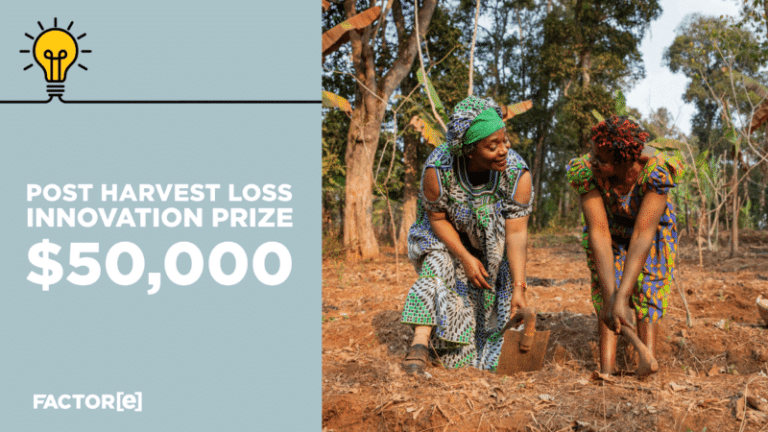Deadline: 14 August 2024
Applications for the Innovation in Post-Harvest Losses Award 2024 . The Post-Harvest Loss Innovation Prize seeks innovative solutions that reduce post-harvest losses for small farmers in emerging markets. Funding for the prize is unrestricted.
The Shell Foundation and the UK's Foreign, Commonwealth and Development Office (FCDO) want to increase farmers' incomes by reducing post-harvest losses in South Asia and sub-Saharan Africa. To achieve this goal, it is necessary to implement scalable and cost-effective solutions that meet the post-harvest needs of small-scale farmers. These solutions should encourage sustainable agricultural practices, while harnessing the benefits of clean energy technologies.
By implementing sustainable and cost-effective solutions to reduce post-harvest losses, farmers can enjoy a range of benefits: increased yields, higher incomes and greater climate resilience. Despite the growth in the number of solutions available (e.g. cold storage units), many of the technologies currently available are too expensive for small-scale farmers. Therefore, to encourage more small farmers to adopt innovations that reduce post-harvest losses and reverse the trend of food waste, it is essential to develop solutions that are affordable, practical and scalable for their operations.
Benefits
- This prize offers more than just a financial reward of US$ 50,000 to the winning candidate.
- The finalists gain access to a network of experienced industry leaders and receive media exposure to showcase their innovations.
- The winner will also benefit from access to post-investment support from Factor E. Get the resources and recognition you need to accelerate your agritech journey, increase your innovation and create impact.
Eligibility
- Open to any entity, including startups, universities, non-profit organisations or for-profit companies.
Evaluation Criteria
They prioritise innovative solutions with the potential to create a substantial impact on the target markets. Although not all criteria are mandatory, they evaluate submissions based on the following main factors:
- Innovation: The innovation must be for small farmers. Entries should demonstrate a new approach to solving a problem faced by farmers in emerging markets. Innovative solutions are defined as technologies, business models, hardware and/or software that have the potential to become commercially viable.
- Solution Validation: They look for solutions that have been successfully tested, either in a controlled laboratory environment or directly in the field.
- Global applicability: Innovations can come from any geography at a global level, but they must have relevance for direct application in South Asia and sub-Saharan Africa, with the capacity to expand to other emerging markets in the future.
- Gender impact: They prioritise solutions with a proven positive impact on women farmers.
- Scalability and reach: The ideal solution should have a clear path to scale with significant commercial returns in the future. The technology should have a direct economic impact with the potential to empower more than 1 million farmers and demonstrate future return on investment (ROI).
- Implementation at farm level: The solution must be designed for use by farmers and not through retail channels.
- Minimal behavioural change: Solutions with a low barrier to adoption are preferred. They should require minimal adjustments to farmers' existing routines.
- Financial Traction: Evidence of progress towards financial sustainability is a positive factor. Previous success in fundraising is also considered.
- Technology readiness level (TRL): They look for well-developed technologies at the validation stage or beyond, preferably with existing paying customers.
- Founding team: A strong, balanced and diverse founding team with a proven and visionary leader (CEO) is crucial.
Application


